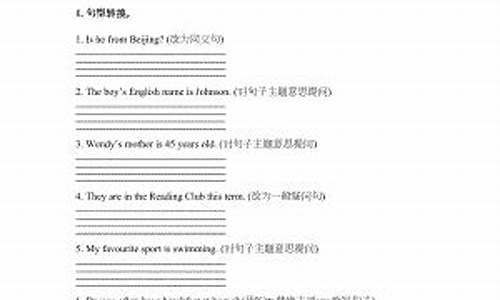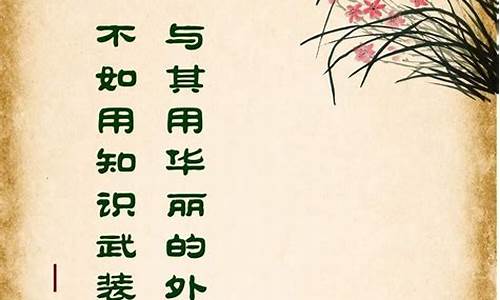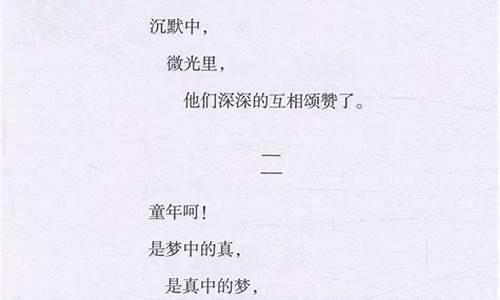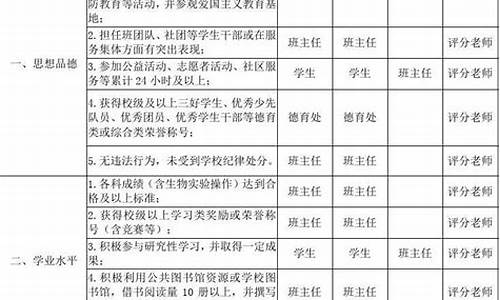英语按要求写句子怎么写_英语按要求改写句子怎么做
1.按要求写句子(英语)
2.小学学段英语要求写作文
3.英语;按要求写句子
4.按要求写句子 英语 6下
5.英语按要求写3个句子,谢谢,在线等待,非诚勿扰!
6.按要求写句子(小学英语)
7.按要求写句子30个。英语。

1 I will make love with your mother.
2 He will take a shower
3 She will play computer games
4 They will play basketball
5 I will play the piano
6 He will drink the water
7 She will go shopping
8 They will run
9 I will be with you together
10 He will fall in love with 第二个 1 He is hing lessons
2 She is(was) playing the violin
3 She is(was) going to the cinema
4 I am(was) playing a joke with you
5 I am(was) making love with him
6 They are(were) playing chess
7 I am(was) playing the
8 He is(was) looking out of the window
9 She is(was) hing lunch
10 He is(was) fall in love with her 反意
1.The adversative conjunction but.
2.This is a tag question.
3.A disjunctive conjunction.
4.A Study of Definite Questions in Zen Quotations in Tang and Song Dynasty
5.a sentence of inquiry that asks for a reply.
6.An Analysis of the Interrogative Function of "
7.It is indeed warm.
8.Chinese FAQ system based on sentence similarity
9.In Gushi variety, this kind question can divide into: Transmitted query information by the intonation -The Echo Question;
10.Its key questi12.By the way, who are you waiting for?
11.FAQ QA system based on sentence similarity
12.By the way, who are you waiting for?
13.Apropos, where were you yesterday?
14.Ask presumingly, why to want amnesty?
15.What hen to him, by the way?
16.By the way, is there a cinema nearby?
17.By the way, what kind of driving license do you he?
18.I: By the way, are you married?
19.By the way, how old is your son?
20.When do I he to open the let ter of credit 第4g
1.Would you?
2.What would you ?
3.Would you lough?
4.Would you agree?
5.Would you, Smith?
6.Would you mind……?
7.Would you go?
8.Would you believe it !
9.What would you like?
10.Would you consider ten?
第5
1.Why not?
2.why not
3.Why not?
4.Why or why not?
5.Why or why not?
6.Why?
7.Why then?
8.Why, yes.
9.Why fish?
10.Question: Why?
11.Why don't you answer?
12.Why don't you stick around?
13.Don't you worry about that.
14.Don't you know what stuff he is made of?
15.Why don't you listen to what the teacher says?
16.That's precisely what I don't want you to do.
17.I don't see what you mean.
18.I don't understand what you mean.
19.If you pretend to know what you don't know, you'll only make a fool of yourself.
20.Don't worry. I'll escort you.
第6
1.a progressive tense used to describe on-going action in the past.
2.Revising the Present/Future/Past Indefinite Tense and the Present Continuous Tense.
3.How long are you planning to stay?
4.testimony n.
5.the past tense
6.This watch is sometimes fast and sometimes slow.
7.Form the pluperfect.
8.the present [past, future] tense
9.The storm broke away at noon.
10.“Caught” is an irregular past tense form.
第7
1.Besides, conditional adverbial clauses (phrases), parenthesis, and the different usages of voice own their respective styles.
2.A Comparative Study between Adverbial Clauses in German, English and Modifier-Head Structure Sentences in Chinese
3.How do you think of the second adverbial clause?
4.Analysis on English Adverbial Clauses Ellipses
5.A Contrastive Study of English and Chinese Adverbial Clauses of Reason
6.Finish the following sentence with an adverbial clause of time or concession.
7.The discourse objects that he been introduced since this subject NP are the same in the two sentence structures, but the object-extracted RC version is still more complex (slower to read) at this verb.
8.In general, several translation methods such as expexegesis, pragmatic extension, linguistic unit?s transformation, ellipsis, and so on are lied to translation of what or what|clause, while, according to specific conditions, different measures are taken in translation of three special structures of what or what clause:the adverbial clause “what…is to…”,the phrases“what with…and…”and “what with…and what with…”,the idioms and fixed phrases with what.
9.a conditional clause
10.The subordinate clause of a conditional sentence, as if it rains in The game will be canceled if it rains.于皓 16:06:14 第8
1.Finish the following sentence with an adverbial clause of time or concession.
2.A Comparative Study between Adverbial Clauses in German, English and Modifier-Head Structure Sentences in Chinese
3.How do you think of the second adverbial clause?
4.Analysis on English Adverbial Clauses Ellipses
5.A Contrastive Study of English and Chinese Adverbial Clauses of Reason
6.The discourse objects that he been introduced since this subject NP are the same in the two sentence structures, but the object-extracted RC version is still more complex (slower to read) at this verb.
7.In general, several translation methods such as expexegesis, pragmatic extension, linguistic unit?s transformation, ellipsis, and so on are lied to translation of what or what|clause, while, according to specific conditions, different measures are taken in translation of three special structures of what or what clause:the adverbial clause “what…is to…”,the phrases“what with…and…”and “what with…and what with…”,the idioms and fixed phrases with what.
8.a temporal clause
9.Besides, conditional adverbial clauses (phrases), parenthesis, and the different usages of voice own their respective styles.
10.a conditional clause
第9
1.The main clause and subordinate clause of compound sentence must he subject and predicate, as same as the simple sentence.
2.Consisting of an independent clause and at least one other independent or dependent clause. Used of a sentence.
3.an independent clause
4.The discourse objects that he been introduced since this subject NP are the same in the two sentence structures, but the object-extracted RC version is still more complex (slower to read) at this verb.
5.A group of words containing a subject and a predicate and forming part of a compound or complex sentence.
6.A sentence of several carefully balanced clauses in formal writing
7.A brief introduction of the English Attributive Clauses (Relative CLauses)!
8.a sentence composed of at least one main clause and one subordinate clause.
9.Of, relating to, or being the principal clause or verb of a complex sentence.
10.Change the attributive clauses in the following sentences into participial phrase. 累死我了,希望你能纳我的答案多加点分,谢谢,,,希望能帮到你。
按要求写句子(英语)
主语为三单的句子:
1.My sister likes milk.
一般疑问:Does your sister like milk?
反意疑问句:My sister likes milk,doesn't she?
特殊疑问句:What does your sister like?
否定句:My sister doesn't like milk.
2.Tom does his homework every day.
一般疑问:Does Tom do his homework every day?
反意疑问句:Tom does his homework every day, doesn't he?
特殊疑问句:When does Tom do his homework?
否定句:Tom doesn't do his homework every day.
主语为非三单的句子:
3。We he a meeting on Tuesdays.
一般疑问:Do you he a meeting on Tuesdays?
反意疑问句:We he a meeting on Tuesdays,don't we?
特殊疑问句:When do you he a meeting?
否定句:We don't he a meeting on Tuesday.
现在进行时的句子:
The boy is flying a kite.(三单)
Jane is dancing under a big tree.(三单)
I am reading an English book.(非三单)
His parents are doing housework.(非三单)
我觉得没必要将主语是三单和非三单各造三个句子,因为相信你通过这几个句子就能明白怎样造了。祝你成功!
小学学段英语要求写作文
1.i like noodles(改为一般疑问句)
Do you like noodles?
你喜欢面条吗?
2.it's an interesting CD-ROM(改为感叹句)
What an interesting CD -ROM it is!
这个CD太有趣了!
3.simon likes fish(改为否定句)
Simon doesn't like fish.
Simon 不喜欢吃鱼。
4.daming likes pandas(改为一般疑问句)
Does Daming like pandas?
大明喜欢熊猫吗?
6.i'm looking at a photo about Beijing(对划线部分进行提问,划线部分a photo about Beijing
What are you looking at?
你在看什么?
7.they eat for twelve hours a day(对划线部分进行提问,划线部分是 twelve hours a day)
How long do they eat for?
它们吃多长时间?
8.a fox sleeps in the day(对划线部分进行提问,划线部分是in the day
When does a fox sleep?
狐狸什么时候睡觉?
英语;按要求写句子
1. 小学生英语作文按要求写6句话
Our teacher asks some students to clean the classroom and some to make it beautiful.some students are sweeping the floor,some are cleaning the blackboard and some are putting beautiful paintings on the wall.After that,out classroom is very clean and beautiful.We are all very hy.。
2. 描写学校的英语作文7——8个句子仅供参考:My School My school is very beautiful. It is Nanhai Experimental School. There are three tall buildings in our school. They all he five floors. In the teaching building, the P.E.room is on the first floor. The library is on the second floor. The science rooms are on the third floor. The puter rooms are on the third floor and the fourth floor. The music rooms are on the third floor and the fourth floor. My class room is on the fifth floor. I am in Class9, Grade 6. There are five gardens in our school. In the gardens there are many beautiful flowers, grass and trees. There is a big playground in my school. I like my school, because my school is very beautiful.写这类作文最好用到There be 句型 最后最好抒发自己对学校的感情,开头开门见山的好。
3. 小学英语作文的书写有哪些要求第一要保证每个句子的正确性,这就需要掌握英语简单句的五种基本类型及有关动词的使用规律;第二要注意句子之间的逻辑性,这就要熟练掌握连词的用法;第三要注意字数的要求
1.正反表态法:在第一段中把正反观点都表达出来,最有一句写自己的观点。1-2句对主题的介绍,3-4句正反两种观点,看法做一个描述,5句表达自己的看法。
2.让步法:先把反方观点引出来,做一个肯定的评价,然后笔锋一转,回到自己的观点上来。
3.背景法:适用于对一个现象分析时,至少为2句话。原因,后果,背景。背景介绍用3-4句话,第一段最后一句用几个单词概括一下。
4.提问试:要讨论什么就先把话题以问句形势提出。回答问题表达自己的观点,对自己的观点做个理由概述/先写出反方观点,对其做一个反驳,顺势提出自己的观点。
英语作文一般最好分三段来写。第一段点明主题,第二段论述,第三段总结。
使用高级词汇。所谓高级词汇,就像快乐不要再用hy 等。多积累高级词汇,否则作文就不会高人一等。
运用定语从句等一些复杂一点的句式。运用时注意把握时态。
多背一些英语名言。
4. 学校规定用英语写小作文5句话.the trust of others, it is necessary to first, the good faith, let others feel that you are a trusorthy and reliable friends, their strong shield.
Then, I e to talk about equality, seemingly just a humble words, but in a group of people's hearts, but it is so
按要求写句子 英语 6下
i don't like skating.用my sister改写 my sister doesn't like skating.
helen is _reading a magazine_.对划线部分提问What's helen doing?
i usually _draw pictures_ on sundays.对划线部分提问What do you usually do on sundays?
i'm taking some medicine.该为一般疑问句并作否定回答Are you taking some medicine?No,i am not.
stand in a line,please.改为否定句Don't stand in a line, please.
it's _half past six_ now.对划线部分提问What's the time now?
she speaks french.该为一般疑问句,并作否定回答Does she speak french? No she doesn't
i speak english.该为一般疑问句,并作否定回答Do you speak english?
he's from _japan_.对划线部分提问Where is he from?
i'm from _china_.对划线部分提问Where are you from?
she does housework after school.改为否定句She doesn't do housework after school
it's time for breakfast.写出同义词It's time to he breakfast.
what time is it?写出同义词What's the time?
英语按要求写3个句子,谢谢,在线等待,非诚勿扰!
1. I he to practice English more.
2. It means you can't eat or drink here.
3. What can we do to keep our city clean.
4. By car.
按要求写句子(小学英语)
Her sister needs some pens.
does her sister need any pens? Yes ,she does. No, she doesn't.
5.His brother lives in school.
Doesn't his brother live in school? Yes ,he does. No, he doesn't.
6.This girl is Mike's cousin.
Is this girl Mike's cousin? yes, she is. No, she isn't.
按要求写句子30个。英语。
1 Danny won‘t fly a kite. will not=won‘t
2 What are you going to do?或what will you do?
3 I went to the lake. go的过去式是went
希望对你有帮助
1.she often goes to school by bus .(改同义句)
改为: She often takes a bus to go to school.
2.Clean the classroom,please .(该否定句)
改为: Don't clean the classroom, please.
3.My jeans are on the bed .(对on the bed提问)
改为:Where are your jeans?
4.There·re five book on the desk .( 对five提问)
改为:How many books are there on the desk?
5.I he six classes every day .(对six提问)
改为:How many classes do you he every day?
6.These are English books .(改单数句)
改为: There is an English book
声明:本站所有文章资源内容,如无特殊说明或标注,均为采集网络资源。如若本站内容侵犯了原著者的合法权益,可联系本站删除。












